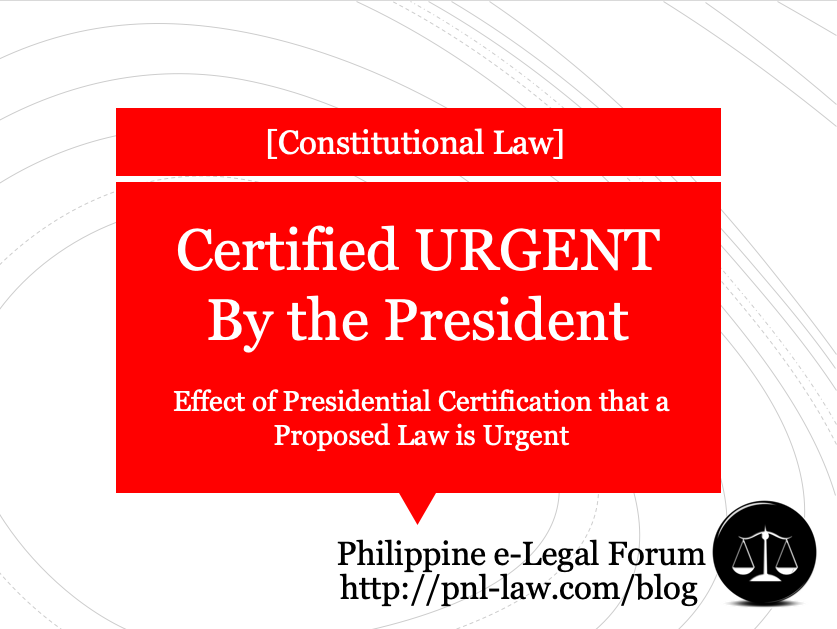The recent passage of the Anti-Terrorism Act of 2020 (House Bill No. 6875) by the House of Representatives brings to fore, among others, the effect of Presidential certification on the urgency of the proposed law. The copy of the CURES Act, on the other hand, contains a note that it is an engrossed bill. What is the legal significance of the certification by the President that a Senate Bill or House Bill is urgent? What is an engrossed bill or enrolled bill?

It boils down to the requirements under the Constitution. For a proposed law to be valid, the Constitution requires, among others, that it must:
- (a) be passed on three readings which must be done on separate days; and
- (b) be printed in its final form and distributed three days before it is finally approved. The printed final form of the bill, which is the subject of approval on third reading, is the engrossed bill.
These requirements are found in Section 26(2) of Article VI of the Constitution, which reads in full:
(2) No bill passed by either House shall become a law unless it has passed three readings on separate days, and printed copies thereof in its final form have been distributed to its Members three days before its passage, except when the President certifies to the necessity of its immediate enactment to meet a public calamity or emergency. Upon the last reading of a bill, no amendment thereto shall be allowed, and the vote thereon shall be taken immediately thereafter, and the yeas and nays entered in the Journal. [Emphasis supplied]
The President may certify that the immediate enactment of the proposed law is necessary to meet a public calamity or emergency. Speed is obviously the overriding reason for such certification. A certification that the bill is urgent removes the requirement of separate days for the three readings (in other words, all three approvals can be done on the same day), as well as the requirement of printing/distribution three days before the passage of the bill.
Once the proposed law is approved, with the certification by the Speaker of the House of Representatives and President of the Senate, it is called an enrolled bill. Under the Enrolled Bill Doctrine, courts will respect the certification of the presiding officers of both Houses that a bill has been duly passed, where there is no evidence to the contrary. Under this rule, the Supreme Court has refused to determine claims that the three-fourths vote needed to pass a proposed amendment to the Constitution had not been obtained, because “a duly authenticated bill or resolution imports absolute verify and is binding on the courts.” This is, however, not an absolute presumption.
[Sources: Tolentino vs. Secretary of Finance, G.R. No. 115455, 25 August 1994; Arroyo vs. De Venecia, G.R. No. 127255, 14 August 1997]
